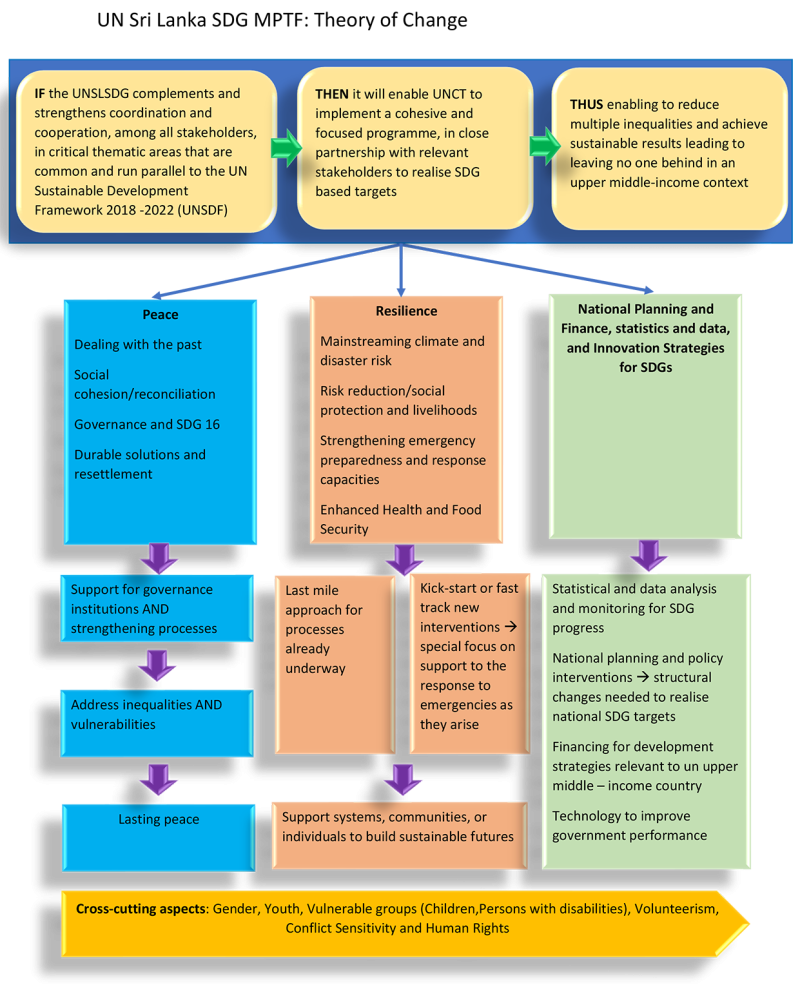ObjectivesFund scope
A collaboration between the Government of Sri Lanka, United Nations, donors, and international and local organizations, the Joint Programme for Peace in Sri Lanka offers a long-term framework for mobilizing funds for peacebuilding opportunities. Although post-conflict peacebuilding is a complex, layered, and process-oriented endeavour, most financing in this area is project specific and short-term in nature. The Joint Programme is a new way for stakeholders to pilot innovative approaches to making peace and security gains in Sri Lanka.
Initiatives are harmonized and integrated in upholding national and international efforts to leverage previous peacebuilding successes and effects. Joint Programme activities are grouped under the thematic areas of transitional justice, community reconciliation, and good governance and resettlement practices. All of which are crucial to advancing peace and security, and providing the government and programme stakeholders with a clear pathway to fast-tracking strategic priorities within the existing Peacebuilding and Priority Plan.
Theory of change
If the government can access strategically targeted, harmonized and sustainable international assistance it can better advance commitments towards peacebuilding through processes that adhere to international standards and address the legacy of past violations and abuses in a comprehensive, principled, rights-based, and victim-centered ways. This allows for justice to be served and confidence restored in state institutions—both of which are necessary for preventing future violations and abuses from taking place, as well as raising local resilience and contributing to a lasting peace.
Similar thinking applies to the themes of transitional justice and resettlement. Comprehensive, principled, rights-based, and victim-centered approaches have the power to reinstate confidence in national institutions. Processes that are increasingly government led, participatory, inclusive and rights-based are more likely to resolve the long-standing grievances of conflict-displaced populations and result in the uptake of durable solutions.





